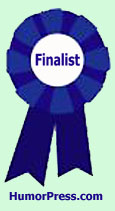We Brits have a worldwide – no, make that a galaxy wide – reputation for thinking that the humble cup of tea, the “cuppa,” is derived from a leafy elixir that can ease and perhaps even cure all of life’s woes. Bad news from the Doctor – oh, we’ll pop the kettle on; he’s been philandering again – well let’s have a brew and discuss it; your three year old son has tumbled from the kitchen worktop and smashed his head open – phew, thank Christ he didn’t also smash the kettle.
Recently I had the chance to test the medicinal power of tea. Ambling out of my living room, I’d discovered my sozzled lodger, Rupert, sprawled at the bottom of the stairwell; and, naturally, I concluded he was probably doing a jellyfish impression. (He sometimes does one for fun but more commonly to startle Mrs Winthrop – our obese pet turtle.) Yet, after I’d guffawed for a minute or ten, it finally dawned on me: gosh, he doesn’t normally perform such spoofundery with his arms out of the sockets, nor, thinking about it, with that bone sticking out of his back – in fact he doesn’t do a jellyfish impression at all; I was confusing him with grand-mummy. And on reflection, she doesn’t either – she only looks that way since I cut her allowance, and she pawned her dentures to afford an electronic toothbrush.
Things were serious, and I needed to take action. Racing to the kitchen, I picked up the telecommunication device and dialled a surgeon. Then, after I’d concluded nattering, I thought, “Golly, was that really the right moment to book in Mrs Winthrop for liposuction?” So, remembering Rupert’s predicament and figuring that this is a life or death emergency, I called the professionals best trained to resolve such calamities. I pleaded with them to send their best man urgently, because Rupert was injured and we needed to help him fast, by drinking tea. (Ahhh… tea; it’s like liquid Jesus.) With alacrity, a gentleman arrived, and after an hour we’d both quaffed six cupfuls. But, and here’s the befuddling thing, when we went out to check on Rupert, this so called Great British cure-for-all hadn’t helped him a bit.
Panicked, we drank another two. But our “flabber” was well and truly “gasted” because I’d tentatively go as far to say that the next time we checked on him, Rupert looked worse. Significantly worse.
Decisive action was needed, so I reported the frightful news to Her Majesty’s Police Constabulary – that is, that I’d obviously been sold defective tea. They seemed so annoyed at me for wasting their “precious tea drinking time” that we had to drink another eight cupfuls ourselves, just to get over the shock. We did think that this time, on balance, the tea had helped Rupert. It was difficult to be sure, but it seemed that way. We noticed that he’d certainly stopped making the disturbing wheezing noises, and, optimistically, he even looked like he was having a little nap.
Then – the brainwave. Since we’d apparently helped him by downing thirty-two cupfuls between us, just imagine the amount of tea power we might unleash if we were to make him drink the same amount. Amazingly, he seemed disinterested when we presented him with a cup. Patently, all the special tea goodness that we’d earlier guzzled, on his behalf, had sent him into a deep curative slumber. Even when we poured fifteen litres of the hot sticky brown stuff over his head, he still wouldn’t awaken. In fact, it seemed to make him sleep even more soundly. So, I guess he was already better and simply resting. A miracle? By Jove no: just tea. You can now see why we Brits adore the stuff.
To celebrate its extraordinary power, I went away for a little sojourn. But, you know, the thing that warmed my heart the most was this: on my return, Rupert had enjoyed his sleep so much that he’d taken steps to reserve his new found, number one dreaming place. And it really cheers me to think that he went to so much trouble to do so, marking out his special sleeping spot with a fresh white outline.
CORRECTION: Sceptical boffins say my claim that the British love affair with tea is known galaxy wide is, in fact, irrational hyperbolic pseudoscience. For pointing this out, gratitude aplenty goes to both Oxford University and Mr Xyros Phallius III from the Zantos constellation.
